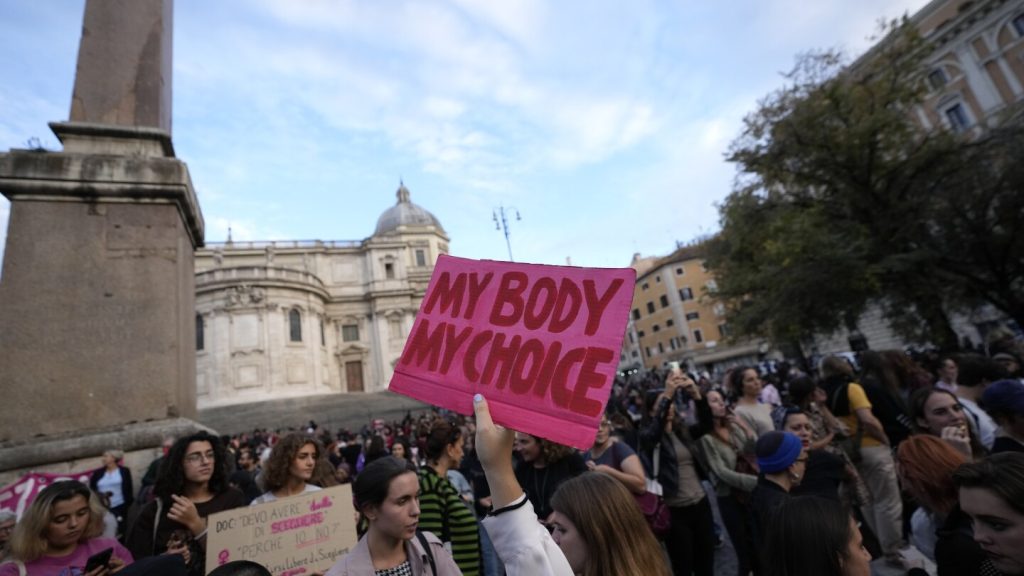Italy’s far-right-led government, under Premier Giorgia Meloni, scored a victory as the Senate approved a law allowing anti-abortion groups access to women considering ending their pregnancies. This move has reignited tensions around abortion in Italy, 46 years after it was legalized in the predominantly Catholic country. The law, tied to European Union COVID-19 recovery funds, includes an amendment sponsored by Meloni’s Brothers of Italy party that allows regions to permit groups supporting motherhood to have access to public support centers where women considering abortions receive counseling. The right views this as fulfilling the original intent of the 1978 law legalizing abortion, while the left-wing opposition sees it as a threat to reproductive autonomy.
Under the 1978 law in Italy, abortion is allowed on request in the first 12 weeks of pregnancy, or later if a woman’s health or life is at risk. The law provides publicly funded counseling centers to advise pregnant women of their rights and services offered if they choose to terminate their pregnancies. However, access to abortion isn’t always easy due to health care personnel registering as conscientious objectors and refusing to perform the procedure, forcing women to travel long distances. Meloni has campaigned on promoting family values and increasing birth rates in Italy, which has one of the lowest birth rates in the world. She claims she won’t roll back the 1978 law but wants to fully implement it, emphasizing the need to encourage women to have babies to address the demographic crisis.
In response to criticism from the left-wing opposition, Meloni has defended the amendment by stating that it aligns with measures in Law 194 to prevent abortions by providing counseling on alternatives. The new tensions around abortion in Italy come as other European countries are moving in different directions on the issue. France recently enshrined the guaranteed right to abortion in its constitution, while Malta relaxed its strict abortion laws. Poland has also taken steps to lift a near-total ban on abortion. There are concerns in Italy that the country could follow the path of the United States, where states are imposing restrictions on abortion following a Supreme Court decision that impacted access nationwide.
The debate over abortion in Italy reflects broader discussions around women’s rights and reproductive autonomy. Critics of the new law argue that it undermines the rights established in 1978 and could restrict access to safe and legal abortions for women in need. Members of the opposition Democratic Party have called for measures to ensure doctors are available to perform abortions in public hospitals, highlighting the need for practical implementation of reproductive rights. As Italy grapples with these issues, the government’s decision to allow anti-abortion groups access to counseling centers has sparked heated debates and raised concerns about the future of abortion rights in the country.


